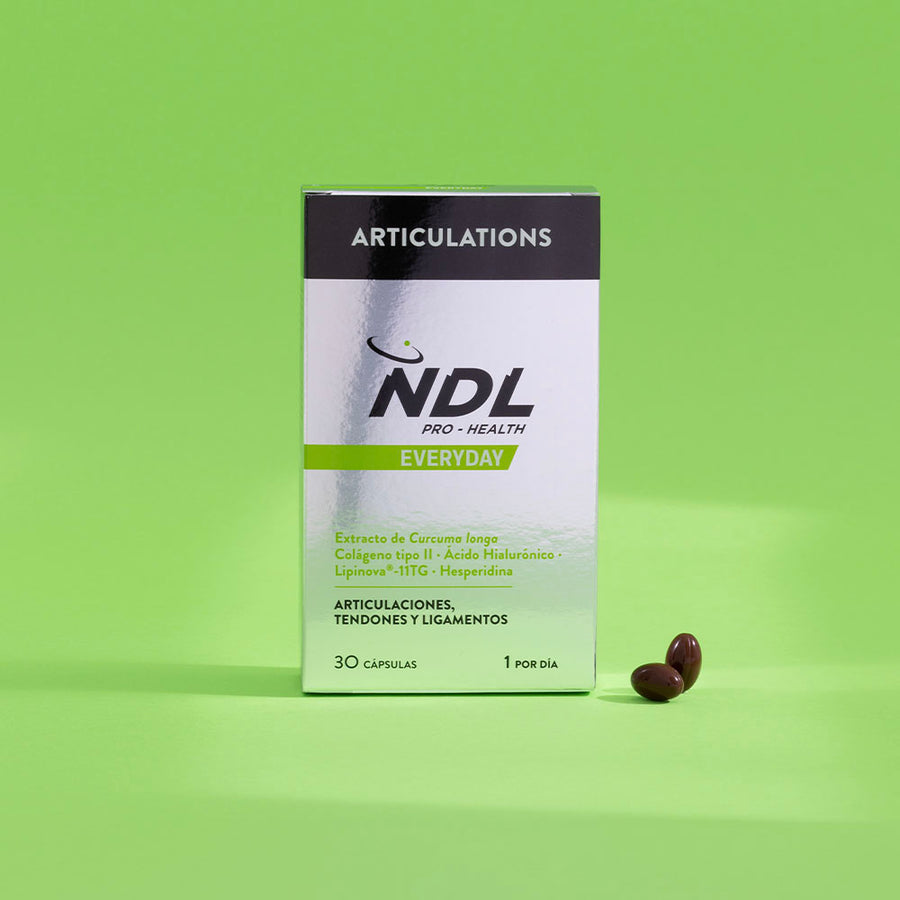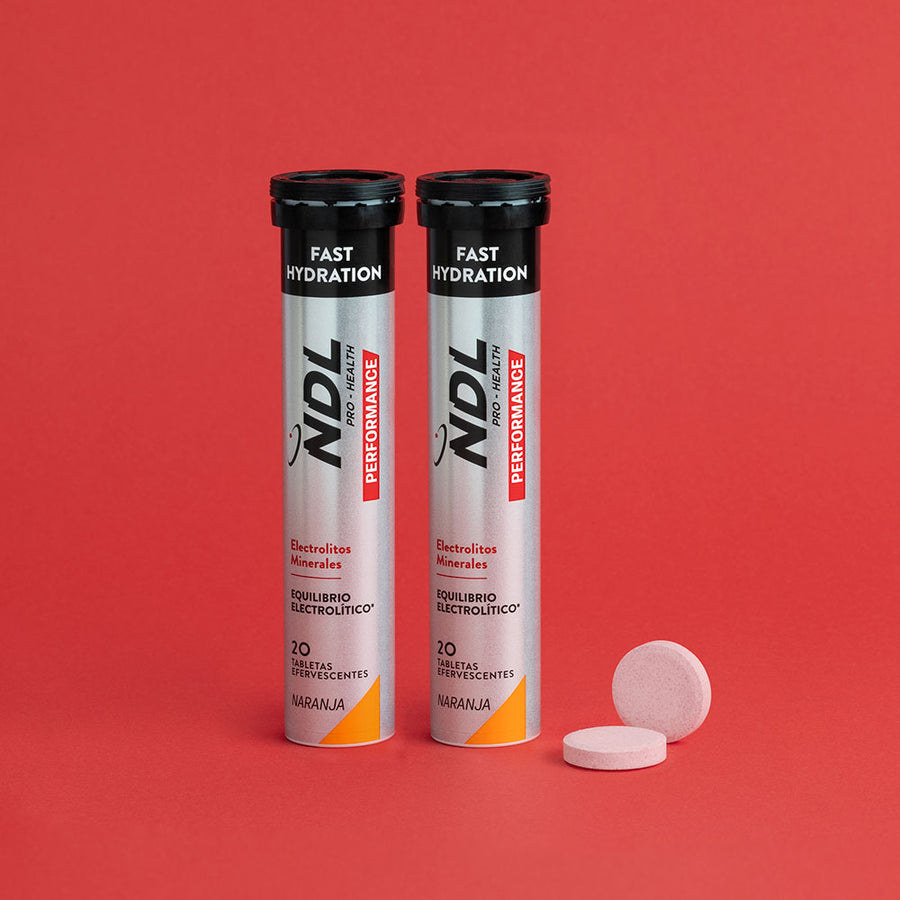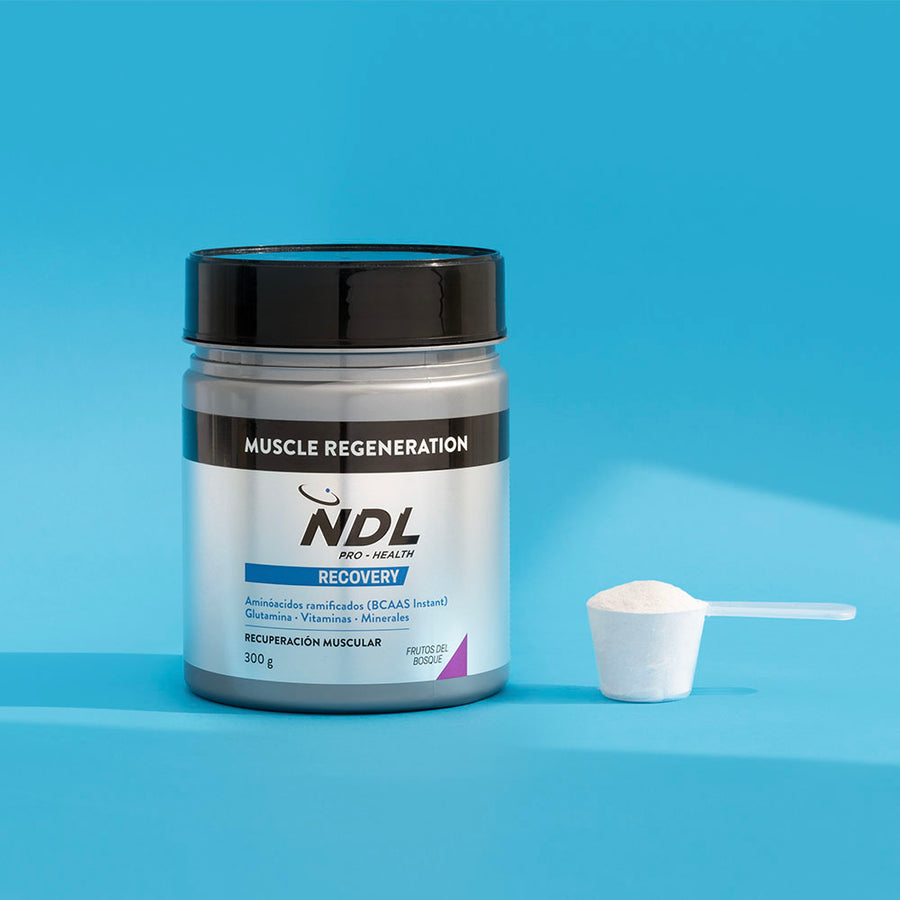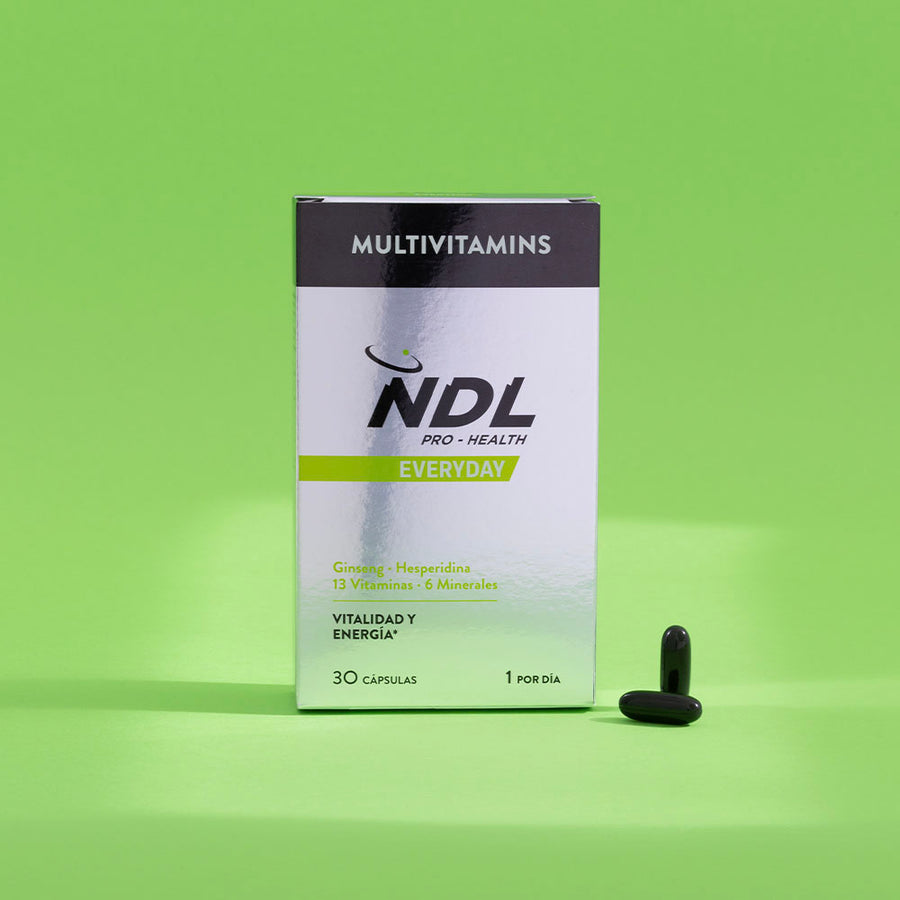Featured Products

Articulations
See product
Fast Hydration
See product
Muscle Regeneration
See product
Multivitamins and Minerals
See productAlthough many people are unaware of it, the digestive system plays a crucial role in the development of diseases: skin pathologies, nutrient deficiencies, immune system, nervous disorders, autoimmune diseases, hormonal problems, allergies, etc. At the end of the day, digestion is of the utmost importance as it is key for us to extract nutrients from food and for them to be absorbed by our body.
Digestion is a mechanism that requires the help of:
- Digestive enzymes: In the mouth we have alpha-amylase, for example, which breaks down complex carbohydrates into simple molecules.
- Gastric juices
- Bile acids
- A balanced intestinal microbiota
- Eating consciously and calmly.
That is why it is important to understand how digestion works, the foods that nourish and pamper the intestines and the importance of digestion in sport. That's why today we tell you everything you need to know about the digestion process and the digestive system:
How the digestive system works
There is a lot of ignorance about how exactly digestion occurs and what processes take place in the digestive system. Let's see which are the steps that take place when we ingest a food and the different functions that the elements that compose the digestive system fulfill:
- What we have ingested reaches our small intestine, and the absorption of nutrients through the villi of the intestinal cells begins.
- Assimilation: This phase begins immediately afterwards. Each of the villi allows the transfer of nutrients through the blood vessels that join them.
- But, before these nutrients are distributed throughout the body, the liver, which acts as a filter, must discard everything that seems toxic or harmful.
- Finally, the blood distributes the nutrients to all the cells of the body.
Digestion and sport
We have established the importance of digestion in everyday life and the role of the digestive system, but why is digestion important in sport?
During sport, blood flow is mostly redirected to the muscle, in the intestine it can be reduced by up to 80%. The physiological causes of gastrointestinal symptoms are determined by reduced blood flow and increased anxiety, especially before an important event. Thus, this will affect the incomplete absorption of nutrients.
We will also take into account causes of nutritional origin such as eating new foods or elaborations, not chewing well or eating quickly, excess of fiber or fats or protein, dehydration or the intake of hypertonic drinks with high density. Avoiding foods that do not agree with us is essential so that the combination of digestion and sport never works against the athlete.
Training the intestines with certain foods or supplements before and during the practice of sport is something that can help prevent gastrointestinal problems. After ingestion, it generally takes 1 to 4 hours for food to leave the stomach. However, the speed depends on the content and volume of the food, so these are also factors to consider.
Other factors that also affect gastric emptying and are therefore important for proper digestion before sports are:
- The smell and sight of the food
- Thinking about the food
- The volume of a drink
- Amount of fat
- The energy density, the temperature and the osmolarity of a drink (If the concentration of the solutions is 8% or more, it decreases the emptying considerably).
- Type of exercise and intensity
- Anxiety and psychological stress
- Women have slightly higher gastric emptying rates and seem to increase slightly during ovulation.
During exercise the gastric emptying rate may slow down, although this can only happen during very high intensity exercise. This is why digestion time, in sport, should be taken into account beforehand and try to plan as much as possible. So, as you can see, the digestive system and sport are more closely linked than many people think.
Our second brain: the intestines.
But the importance of digestion goes far beyond sports. For example, we know that 80% of our immune system is located in the intestine. The enteric nervous system (ENS) emits signals through neurons that the vagus nerve (which connects the brain to the intestine) transmits directly to the hypothalamus. Finally, the hypothalamus, in turn, transfers the message to the appropriate place.
On the other hand, about 80-95% of the serotonin is manufactured in the intestine, which, through platelets, will travel to the central nervous system by crossing the blood-brain barrier. This serotonin is commonly known as the happiness hormone. Thus, a bad intestine will produce less serotonin and will directly affect our mood, which explains part of the importance of digestion, both in sports and in so many other aspects of life, which we have been talking about.
Neurotransmitters such as serotonin, besides putting us in a good mood, help us to regulate the sleep cycle and ghrelin, a hormone that stimulates appetite before eating and controls the satiety hormone leptin. It should also be borne in mind that our knowledge of our microbiota is evolving every day, so probiotics are becoming more and more specific. Thus, we are sure that there are still more discoveries to be made that confirm, even more if possible, the importance that the digestive system and good digestion have for the rest of the body.
Factors causing poor communication between the enteric and central nervous system
- Intestinal flora imbalance: stress, depression and the like can have a major impact.
- Poor nutrition
- Lack of sleep and physical activity.
- The use of drugs such as antibiotics or anti-inflammatory drugs.
Once again, we confirm the impact that aspects related to food and digestion can have on other aspects of our organism. The imbalance of the intestinal flora, whatever its cause, can favor the occurrence of problems in the nervous system, so it is certainly something to be taken into account.
So, the relationship between digestion and sport is much more important than it might seem, but in fact, the digestive section and the process of absorption of nutrients have an important impact on the whole body in general. Now you know how the digestive system works, what happens in digestion and what its impact is. Do not forget the tips we have given you and take into account the digestion before doing sports.

I have a diploma in Nutrition and dietetics from CESNID (University of Barcelona), a degree in Nutrition from Kin's College University of London, a postgraduate degree in Sports Nutrition and PNIE (Psychoneuroimmunoendocrinology) from the University of Barcelona, and a diploma in Ayurveda Nutrition, energy cooking and Naturopathy. Course Sport Nutrition at the Natural Gourmet Institute for Health and culinary arts in New York and co-owner of Ametlla + de Mallorca in Artà, I currently advise elite athletes and companies. Director of the nutrition department of Rafa Nadal Academy in Manacor and director of the master of Nutrition and sport of the University Alfonso X.

















